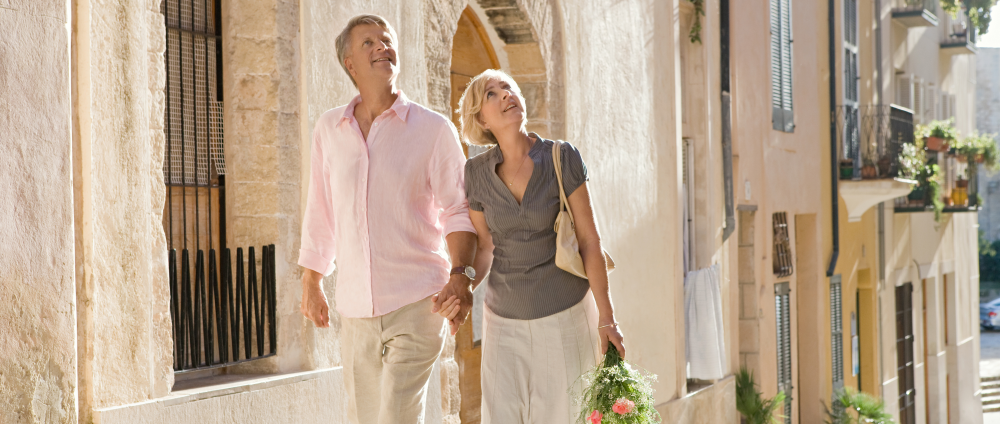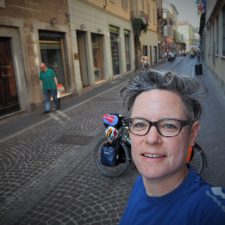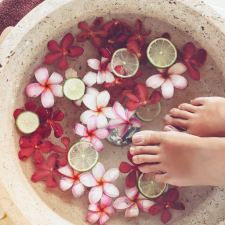
Are we loving the world to death? You only have to battle the hordes at Angkor Wat at sunrise to know we most definitely are. And it’s just the same in Venice, Dubrovnik, Hvar to San Sebastian. Overtourism is fast becoming a serious problem leaving ancient ruins, architectural marvels and pristine environments in danger of being trampled and cherished cultures destroyed.
There has never been more people travelling, and most particularly we are pouring into the same spots and the destinations can’t cope. Angkor is a prime example: the park stretches for 400 kms and yet most people just visit the same three temples: Angkor Wat, Bayon and Ta Prohm. And scariest of all – up to 9,000 people a day trudge through those temples.
Overtourism is not just about crowds. We in Australia know all about our carbon emissions caused by our goings and doings. Just one trip to London a year will generate over 16.8 tones of CO2 per passenger. And the environmental impacts of tourism are equally well known. For example, Siem Reap, the town closest to Angkor Archaeological Park, has been enormous. The city can only supply about one twenty-fifth of the water it needs every day for the 2000 hotels and thousands of homes. It means illegal pumps and wells are sucking up the underground water and destabilising the sandy soil causing the temples to sink.
The Solution:
The fight against overtourism is all about being respectful and being a thoughtful traveller. It’s about caring for a place that isn’t yours, about staying not for a few hours but for a few days to inject money into the economy, enjoy what a place has to offer and making an effort to learn basic expressions in their language. Basically, being a good guest!
Here are TYW’s suggestions for travellers to do our part in making destinations we visit better for locals, the environment and our fellow holidaymakers
1. Consider going somewhere else
Always think about an alternative option, secondary and tertiary sights such as Utrecht instead of Amsterdam, Verona over Venice, Nara over Kyoto, Banteay Chhmar over Angkor Wat. This will improve your holiday experience and promote lesser known destinations which also tend to be cheaper and less visited. Travel planner like Travel Your Way will always be able to link you to worthwhile alternatives.
2. Travel off season
There is an old saying ‘timing is everything’, and travelling off or in shoulder season is a sure-fire way to escape the crowds and get cheaper prices. Europe has a special charm with the autumn foliage or in the snow. Just look what a drawcard Christmas markets are in Nurnberg, Salzburg, Prague and beyond. And if you want to party, who can go past Hogmanay (New Year) in Scotland.
3. Chose to stay in locally owned accommodation
This is a guaranteed way to ensure profits go back into the local economy rather than into multinationals. There has been some controversy about Air BnB pushing out locals from their own homes so use locally registered B&Bs and hotels and avoid short term rental apartments which push the price of accommodation up for locals. In an unfamiliar destination a chain hotel (where everyone speaks English) can be like an oasis. But use with care, and ask about everything from food sources to the hotel’s environmental impact before you sign up. If a business realises they lose customers because it doesn’t support the local economy or protect the environment it will likely change practices.
4. Buy locally made products
One of the big issues in Venice and umpteen places across the world is the number of local shops that have closed to make way for tacky souvenir shops. Let’s face it all those caps, key chains, and statues of David or London buses just clog up space and end up in landfill once you are home. Instead, spend your money on local artisan wares. You’ll have the satisfaction of supporting the continuation of cultural expression and a souvenir that actually reflects the place you’ve visited. Have a chat to the tourist Information Centre, they are sure to know where to source such products.
5. Learn some local language
Whether its hello, goodbye and thank you or more, everyone likes to hear a visitor at least attempt to speak in their language. Remember they have let you into their homeland, so thank them by learning something from their way of life.
6. Reduce your waste
From the beaches of Thailand to the streets of Rome, plastic waste is a blight on the planet. So, try to not add to it on holidays. Take your own bottle of water that you can refill, don’t accept straws and bring along reusable bags for your shopping. Cleaning up after yourself is one of the simplest sustainable practices to adopt.
7. A final note:
And I know you already are – be respectful. Don’t forget people are going about their busy daily lives while you are holidaying. Be culturally alert in your dress, abide by local laws and smile – you’ll be surprised how far that takes you.
We’d love to hear your thoughts on wandering responsibly. Please drop us a line at anthea@travelyourway.com.au


